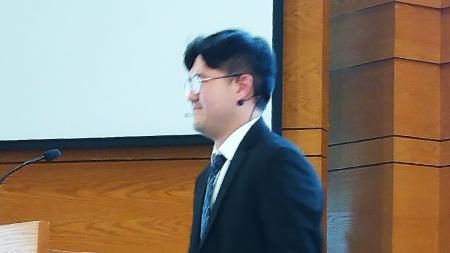New Pilot Project Helps Churches to Build Faith

This image, created by Bethel CRC, symbolizes belonging.
Faith Formation Ministries
Terri Baas says her congregation is pleased to be one of 15 Christian Reformed churches participating in a pilot program that has a goal of helping people grow in their faith.
Already the program — called “Building Blocks of Faith” — is helping members of her church, Bethel CRC in Princeton, Minn., get beyond a painful period and come together as a congregation.
“Our church had gone through a difficult time over the past two years. Our ministries kept going, but the leaders were starting to feel overwhelmed,” said Baas, whose church had been seeking a new pastor during much of that time.
“But then last year I was at a workshop where I learned about the Building Blocks. It sounded like what we needed. . . . Now that we are involved in it, it is bringing a breath of fresh air to our church.”
The Building Blocks pilot project, offered through the new Faith Formation Ministries, is based on a model that includes four building blocks: belonging, knowing, hoping, and calling/equipping.
“This program offers a cradle-to-grave model for churches to consider in trying to meet all of the faith formation needs of people in their churches,” said Lesli van Milligen, who is coordinating the project along with Laura Keeley.
“But this is not a pre-set program. It is more of a lens through which churches can assess where they are in helping people develop their faith and where they want to go,” added Keeley.
The 15 churches in the pilot program are at different phases of the project, which launched in September.
In Minnesota, said Baas, they are focusing on belonging. So far, they have gathered ministry leaders and given them the chance to learn more about the project.
But especially helpful, she said, was a time in which they could discuss issues that have faced their church as well as share their personal stories of faith.
“We’re going to put this tool in the hands of our ministry leaders and try to keep the momentum going,” said Baas, who is mentoring director at her church and a member of the Faith Formation team.
“We see this program as an infusion of the Holy Spirit at our church,” she said. “We are encouraged that these materials are one of the things the CRC has put together to give to churches.”
Synod 2015 learned about the project in a special presentation by Faith Formation Ministries, which formally launched as a CRC ministry during synod.
As part of the project, said Keeley, “each church is encouraged to assess the strengths and gaps in their faith formation programs, as well as the needs of their members, in order to help them grow in their faith.”
In addition, each church has a coach to assist them as they move through the building blocks.
The first building block, “I Belong,” asks people to sort through the crucial issue of whether they feel they are included in all aspects of church life, said van Milligen.
Individuals can meet in small groups, but the church is encouraged at some point to gather everyone and give them the chance to speak about how they feel and whether or not they believe that they belong.
“People can meet and have conversations across the generations,” said van Milligen. “It is important that all people have the chance to articulate how they see themselves.”
The second building block is “I Know/Understand.” As part of this, church members learn about and express what their faith means to them, said van Milligen.
The next is “I Have Hope,” in which church members discuss important dimensions of the Christian life, said Keeley.
Often this can happen through sharing stories.
"Our hope is manifested by listening to others tell the story of God’s work in their lives and by serving others,” Keeley noted in an article in "The Lifelong Faith Journal" that she wrote with her husband, Robert.
“We do not need to experience a miracle in order to see God renewing the world. We can see it in God’s people.”
The final building block is “I Am Called and Equipped.” While helping all members of a church discover ways they can grow together in ministry, this building block has a particularly personal aspect, writes Keeley.
“God has a task for us as a community but also as individuals. My call is not your call. My gifts are not your gifts. My equipping is not your equipping.
“But we are all called, gifted, and equipped, and God has given us this unique combination to serve in his kingdom,” writes Keeley.
Rev. Drew Sweetman, pastor of Spring Lake CRC in Spring Lake, Mich., says that his church, which is also part of the pilot project, already sees benefits.
For example, a new family has begun to attend the church. Normally, he said, he and other church leaders would relatively quickly suggest how the family could fit into already existing programs.
But the Building Blocks project offers a different approach.
“We can ask them where are they in their faith journey,” said Sweetman.
“What will be appropriate for them? What might work for them? What are the ministries we already have or that we can tweak in order to help them, as well as others in our church, in their journey of faith formation?”
At the end of the Building Blocks pilot phase, likely to last a year, the 15 churches will be encouraged to continue in the process, and churches elsewhere in the denomination will have a chance to join in.
“Our goal is to have a toolkit that can help churches throughout the CRC take part in this faith formation process,” said van Milligen.


